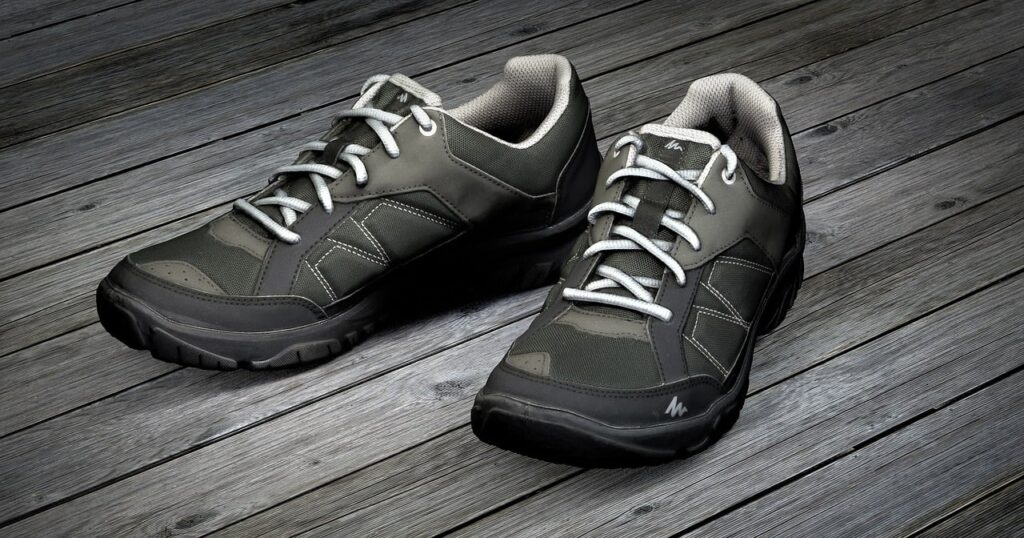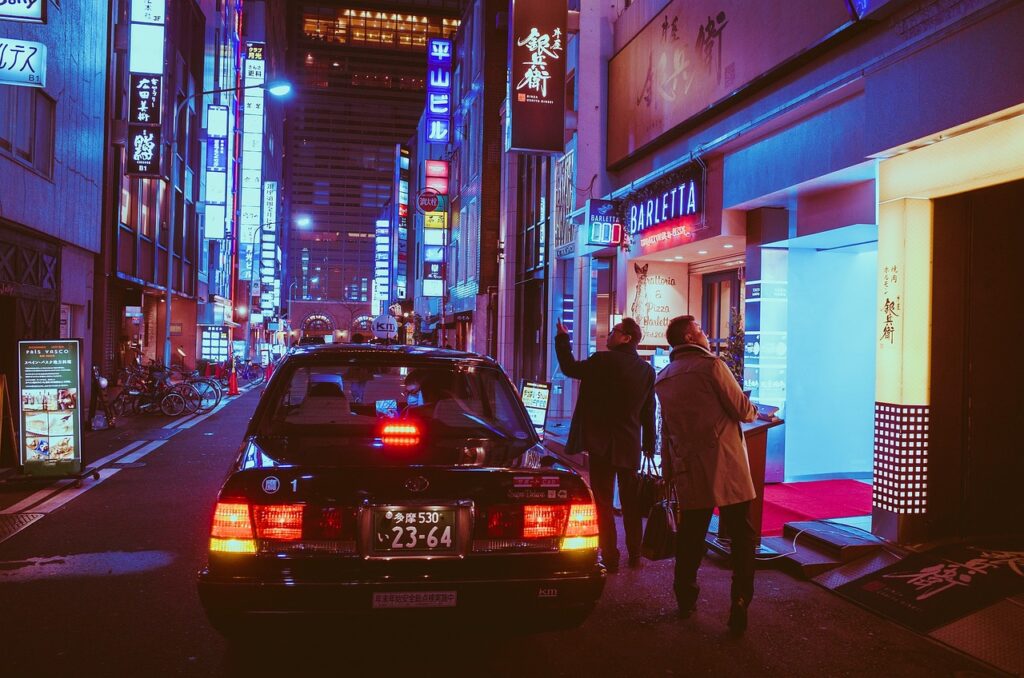The different countries of the world have their own rules and etiquette that every citizen is expected to follow, and Japan is no exception.
They say: “When you get to Rome, you behave like a Roman”.
Japan, being a very culturally sensitive country, has its own dos and don’ts. If you are a foreigner, perhaps visiting for the first time, they don’t expect you to know every Japanese rule and etiquette; however, knowing the basic ones is advisable.
Here, we will be looking at 19 things not to do in Japan. It’s advisable to learn them carefully before your visit to the country.
19 Things Not To Do In Japan
1. Do not wear shoes inside

You might not be familiar with this, but the no-shoe-inside rule is taken seriously in Japan. If you are going to be visiting a Japanese home, shrine, school, hospital, or even some hotels, bear this rule in mind.
Before getting inside, remember to remove your shoes at the entrance and put on the slippers, which are usually available at the doorway.
You might not need to worry about this rule if you are not going to be visiting most of these places.
However, once you see a line of shoes at the entrance where you are entering, do likewise. Socks are often allowed inside.
In restaurants where food is served on the local tatami mats, you’ve got to be bear-footed or wear socks without holes that can destroy the mats. Wearing slippers is a no-no in this case.
2. Don’t eat while walking or in public
In Japan, most people do not eat while walking, because it is considered improper. Even in public canteens or after purchasing a drink from a vending machine. You have to either consume it immediately there and dispose of it in a trash can or take it home to avoid littering the environment.
Also, eating food, be it snacks or whatever, or even drinking on public transport is regarded as bad etiquette, unless on long train rides. So to save yourself from embarrassment, just avoid it and play by the rules.
3. Don’t play with chopsticks

If you know how to use a chopstick as a foreigner, people will definitely be impressed. But, playing with or rough-handling chopsticks is considered out of manners.
Also, when dishes are being shared, you have to pass the food to your plate before eating from it.
Passing food from chopstick to chopstick and rubbing your chopsticks is also a no-no. When you are done eating, you have to drop your chopsticks on the chopstick holder near your plate.
4. Don’t point at people or anything

Pointing at anybody or anything at all is one of the 19 things not to do in Japan; it is considered disrespectful or rude. Instead of doing that, you can calmly wave your hands at the person or thing.
Similarly, using a chopstick to point at someone is also considered bad manners. You don’t have to question this, it’s an age-long culture.
5. Never blow your nose in public
Blowing your nose in public in Japan is one of the 19 things not to do in Japan and is considered an irrational or unhealthy behavior.
If it is necessary that you blow your nose, simply look for the nearest restroom to do that.
It’s common to see people putting on nose masks, especially in winter seasons when communicable diseases are often rampant. The act is to prevent the spreading of diseases and germs.
6. Making noise on public transport
This is one of the most important 19 things not to do in Japan. The country’s people live a very quiet lifestyle, and often due to the work schedules in big cities like Tokyo, they hardly have enough time to rest.
So often, people take their naps on public transit while others use that time to read on their phones or play mobile games.
It wouldn’t be okay if you were being too loud, perhaps when on a phone call. If the call is important, make it in a low tone to avoid disturbing other people on the bus.
Similarly, disturbing the neighborhood with loud music or making noises is a sin in Japan. Bear this in mind: maintain quietness always.
7. Telling people to keep the change after buying something
Telling a salesperson to keep a change after buying something is considered disrespectful; don’t do it when you are in Japan. If you do that, you did see the person running after you to give you your change.
It’s not a crime though, it’s just an age-long Japanese culture. It’s best you save yourself the embarrassment of seeing someone running after you to give you back your change.
Whether you are in a taxi, hotel, restaurant, or anywhere you transact with cash, always remember to take your change!
8. Never pour yourself a drink

When you are in company with your Japanese friends or colleagues in a bar or drinking place, never serve yourself a drink; it’s culturally inappropriate and considered rude.
Instead, serve everyone at the table first, and they will do the same for you. It sounds crazy, but that’s a drinking culture almost everyone obeys in Japan.
9. Never give or receive things with one hand
In Japan, most of the ancient cultures and etiquette are still in use today and have never been affected by civilization in any way.
Giving or receiving anything at all with one hand is inappropriate and uncouth, and it is among the 19 things not to do in Japan.
When you are in a public place, always give or receive with your two hands. This does not exempt giving a light object like a credit card to a receptionist at a hotel.
When you are buying drinks in a bar, the bartender might bring a tray where you can drop your money.
10. Never get into the bathtub without showering
Unlike in America, where you can take your shower in the bathtub, it’s not done in Japan. You are probably hearing this for the first time, but bathtubs in Japan are for soaking and relaxation. In most Japanese homes, they use heated water for this.
Even in public bathing places known as onsen, you have to take your bath first before you are allowed into the water.
It is also mandatory that you tie your hair properly to avoid it touching the water, and your towel must not touch the water either.
Bear in mind that you don’t swim in the onsen; it’s only for soaking and relaxation. Also, if you have tattoos, you might not be allowed in. That’s because tattoos are frowned upon in Japan, and most people who have them are often seen as the bad guys.
11. Avoid direct eye contact
You did get surprised when you get to Japan and started seeing people not looking you in the eye.
In America and most other Western countries, it’s common to look people in the eye when talking, but in Japan, it’s different.
Most people don’t look you in the eye because it makes them uncomfortable, so you should probably avoid that yourself.
However, it’s not a crime, but when it involves you with older people, it is sometimes taken as disrespect. So it’s best you avoid it anyway.
12. Don’t expect everyone to speak English
Most people don’t speak English, so don’t be surprised. However, you can take the opportunity to learn Japanese in your free time.
People who can speak English are not many in Japan, though it’s common to see shops, restaurants, and offices with an inscription written in English.
Despite the fact that many Japanese schools teach a little of the English language, most people still don’t know how to speak it or are rather afraid of making mistakes.
This is because Japanese is the official and general language spoken in schools, offices, and public places. Well, you did see English-speaking staff at the airports and hotels.
When you are out of these places, it is advisable to use simple English spoken slowly when communicating with people so they can understand what you are saying.
13. Never be late for appointments or meetings
Being late is one of the 19 things not to do in Japan. The Japanese take punctuality very seriously; almost everyone is time-minded.
When you are in for business meetings, a doctor’s appointment, or an appointment with your stylist, go early enough.
Most people arrive at least 5–15 minutes before the scheduled time. In an informal meeting with friends and colleagues, it’s acceptable. However, if you are going to be late, don’t be too late; otherwise, you may see that everyone has finished and left before you arrive.
Almost everything is done swiftly and timely.
14. Not placing your shoes in the right way
As mentioned, shoes are not allowed inside Japanese homes, shrines, and some designated places. When putting your shoes off at the entrance, there is a way to do it.
Japanese people value orderliness so much that when they take off their shoes at the entrance before putting on their slippers, they ensure they face the outside.
You might think that this doesn’t matter, but it matters to them. But being a foreigner, they may probably teach you or turn a blind eye. But if you do it the right way, it will definitely trill them and prove that you’ve done great research about the practice.
15. Don’t visit only Tokyo

Tokyo is the most popular Japanese city, probably because it is the capital. Despite having a lot of places to explore and visit in Tokyo, you should not limit yourself to the city alone.
You can also take a day trip to cities like Osaka, Okinawa, Hiroshima, and Kyoto; there are plenty of places to explore in these cities. If you are on a short visit and might not have all the time to make all these visits, you can take public transport to places in the city suburbs.
There are a lot of tourist sites to see, like Mount Fuji, Hakone, and the rest.
16. Never ignore the queuing rule
In Japan, orderliness is an important thing, and the queueing system is very important.
When you visit, if you are in any place and you see people in a queue, join the queue and don’t break it.
Breaking the queue is really frowned upon, irrespective of who you are. Either in a train station, restaurant, or hotel reception, once you meet people in the queue, you should join and wait until it reaches your turn.
17. No smoking on the streets
Smoking on the streets is one of the most important things to keep in mind among the 19 things not to do in Japan. It’s even illegal, and you can get arrested for that.
If you must smoke a cigarette, don’t do it in public, unless in places like a bar, your hotel room, or public smoking places. In some big buildings, there is usually a room set aside for that, but in some cases, no.
Of course, you did see some Japanese breaking this rule; don’t follow suit as a foreigner to avoid embarrassment by the authorities.
18. No jaywalking

In Japan, jaywalking is illegal and might attract a warning from the police or even a fine. Almost everyone plays by the rules. You did get surprised that most people don’t cross the road even where there is no car until the traffic light changes.
As a pedestrian, walking in a lane meant for motorists is also inappropriate. Always walk on the sidewalks and pedestrian crossings when you want to cross the road. It would be best if you followed all the road regulations to avoid any embarrassment.
19. Don’t put your bag on a seat
Most Japanese people always complain about foreigners doing this. If you have plenty of luggage to just put in somewhere on the public transit system, putting it on seats meant for passengers will most definitely raise eyebrows.
This is not only applicable to public transit but also to other places like offices or establishments. So cut yourself some slack by bearing in mind not to put your luggage or bags on seats meant for people in Japan.
This is also a very important thing to note about the 19 things not to do in Japan. It shows you have knowledge of basic Japanese etiquette.
Final Thoughts On 19 Things Not To Do In Japan
Japan is really a nice country to visit because there are a lot of places to visit, lots of food to try, and the people warmly welcome visitors.
Doing some of these things listed out here as a foreigner is not an offense, and while making these mistakes might look uncomfortable and sometimes embarrassing, the Japanese people are very understanding. Knowing you are a foreigner, they will rather correct you with love so you don’t make such mistakes again.
On the other hand, knowing all these rules and several others before your visit and applying them on your visit will definitely earn you some respect and show that you value and respect Japanese culture.



